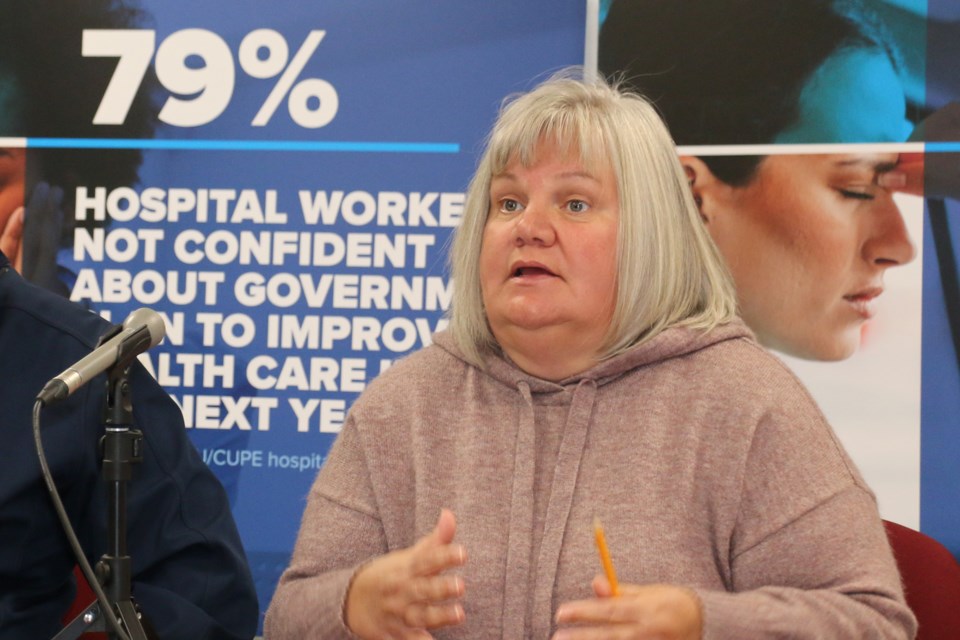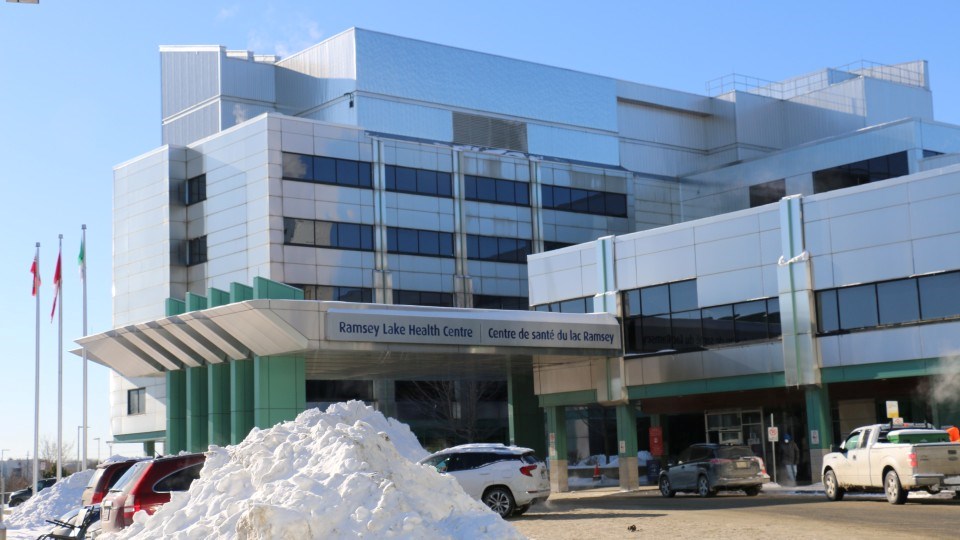More and more Ontario hospital workers say they "dread going to work" because of an ongoing shortage of staff across the province, but particularly in Northern Ontario.
That was some of the information that was shared Monday by union officials who are members of CUPE and the Ontario Council of Hospital Unions (OCHU).
The survey of Northern Ontario hospital workers was part of a province-wide poll by Nanos Research of more than 750 staff represented by CUPE and OCHU. The details were presented by Dave Verch, first vice president of OCHU/CUPE and Sharon Richer, secretary-treasurer of OCHU/CUPE at a news conference in Sudbury on Jan. 8.

Provincial hospital unions are currently involved in contract negotiations with Ontario hospitals that are members of the Ontario Hospital Association (OHA).
Richer said the purpose of the survey was to poll unionized hospital employees about their working conditions, their mental health, as well as their confidence in the public hospital system.
"The survey confirms that workers are very unhappy around their working conditions with a profound consequence on their mental health. The results show that a vast majority of staff don't believe that the government will be able to make improvements in the system over the next year. And more than two in five workers are either contemplating or are considering leaving the sector within the next year," said Richer.
Richer said staff turnover in general in the Ontario hospital sector has been more than 10 per cent in recent years. She said this is impacting medical wait times.
"The staffing crisis is also contributing to the long surgical waitlist, where we're seeing over 100,000 Ontarians are waiting beyond medical recommended guidelines to have their procedures done," said Richer.
The Nanos Research poll showed that 41 per cent of Ontario hospital workers dread going to work and 43 per cent of the workers said they were considering a new career path.
"So the polling results for Northern Ontario are deeply concerning, because they are higher than the Ontario average. And, you know, we're seeing really negative impacts of workers' conditions on their mental health," said Richer.
She said 58 per cent of Northern Ontario hospital workers say that they are exhausted; 53 per cent of them say they have anxiety; 58 per cent of them are dreading going into work, and 53 per cent of them are having trouble sleeping, said Richer.
"These findings are nothing short of alarming," she said.

Verch, CUPE/OCHU first vice president, said money is not always the answer to problems, but funding cutbacks are not helpful at all.
"We find it unconscionable that despite the unprecedented crisis in our hospitals, this year's budget estimates show a 0.5-per-cent increase in the hospital budgets. This is when healthcare inflation is running at approximately 5.6 per cent. That's a real dollar cut. And it's mind boggling that a government would double down on policies that are clearly detrimental to our health care system," said Verch.
He added that compensation needs to improve because even though the Conservative’s Bill 124 (capping wages at one per cent) was overturned in the courts, and workers received wage increases, Verch said their real incomes declined because of inflation.
He said working conditions are also an issue and more funding must be provided to allow hospitals to hire more staff at better wages.
Staffing ratios
Verch said Ontario needs to adopt mandated staffing ratios to ensure patient numbers do not exceed a set number of health-care workers.
Verch said the idea has been put on the table in the current round of bargaining with the Ontario Hospital Association.
"We have put forward a proposal to implement staff-to-patient ratios in all hospital departments from ICUs, ERs, maternity wards and rehab units," he said.
He said the government of British Columbia this year became the first province in Canada to adopt staffing ratios and he said Ontario should do the same.
Verch said hospital health spending must increase by $1.25 billion a year in the next four years, on top of inflation, to increase staffing levels.
He said this increase is modest and affordable for Canada's richest province.
"And we think it's a very reasonable ask when we find ourselves in this unprecedented crisis," he said.
Verch said the money for this is already in the Ontario treasury.
“We're really counting on the public to actually demand more of this government. When I talked about the $1.25 billion increase over four years, they are currently sitting on a contingency fund of $5.4 billion. So the money is there. It just needs to be a priority of the government to spend it,” said Verch.
Len Gillis covers health care and mining for Sudbury.com.
